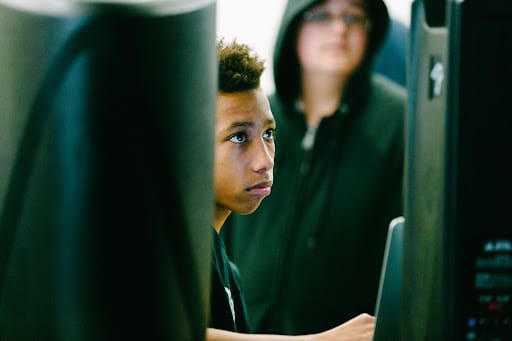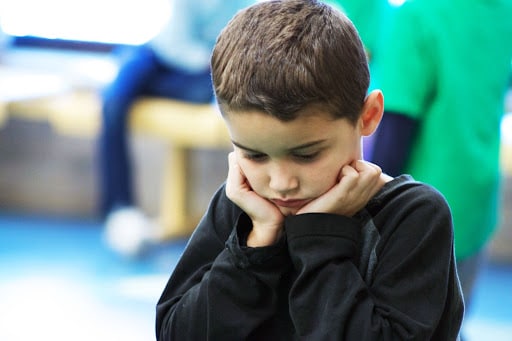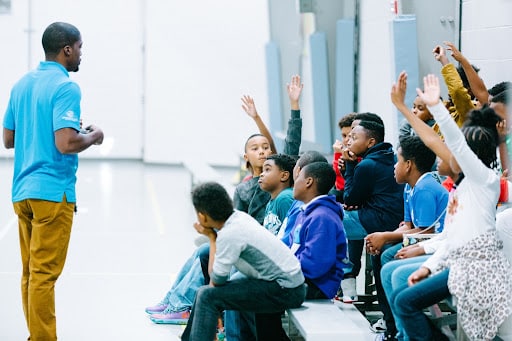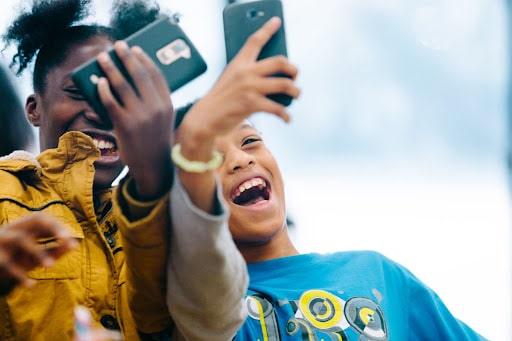Cyberbullying Awareness

Cyberbully Awareness

The Boys and Girls Clubs of Central Georgia strive to create a safe environment that all children and youth can grow and learn in. It’s important that all Club members feel comfortable and supported when they come through our doors. We do our best to equip members with the right tools and knowledge to succeed outside our doors. Our mission makes that clear: the Boys & Girls Clubs of Central Georgia strives to enable all young people, especially those who need us most, to reach their full potential as productive, caring, responsible citizens. We’re dedicated to providing a safe, positive place and having a significant impact on their lives.
October is Cyberbullying Awareness Month. Today, bullying can happen online and on social media. It’s important to know what cyberbullying looks like, how it can affect individuals, how to prevent it, and how to stop it.
What is Cyberbullying?
Bullying is usually defined as unwanted or aggressive behavior that is used to hurt, coerce, or intimidate someone. Cyberbullying has the same structure with some added distinctions. Cyberbullying allows the bully to remain anonymous, making it difficult to confront them or put a stop to it. Bullies online are not limited to a classroom or school yard when they harrass or embarrass their victims. They can reach more people than ever before, with the click of a button they can spread their content on multiple social media platforms for millions of people to view. Cyberbullying can take on many different forms.
Cyberstalking
involves the use of internet and online information to stalk an individual or group. Social media is used to harass the intended target, often this form of Cyberbullying is cause for greater alarm because it can involve threats, monitoring, identity theft, blackmail, vandalism, slander and libel, etc.
Trolling (Internet troll)
is the act of provoking an individual or group of people until the troll gets their intended reaction or response. A troll is for the most part creating conflict or mischief for their own amusement.
Hate Raids
exist mostly in the world of live streaming services. During a stream, a plethora of automated bots overwhelm the user’s chat box or message board with hateful messages. The use of automated bots makes it difficult to block or ignore the incoming messages.

Where Does Cyberbullying Happen?
Cyberbullying can happen just about anywhere on the internet:
- Social Media like Facebook, Instagram, and Tik Tok are common
- Text Messaging and messaging apps like Whatsapp
- Online chat rooms and forums, message boards like Reddit
- Online gaming communities such as Twitch
- Email, etc.
In addition to impacting the physical and mental well-being of school aged youth, cyberbullying can create a negative reputation for victims. Due to the permanency and public space of the internet, information and pictures are easily accessible. Cyberbullying can impact employment, college admissions, etc.

What Can Schools Do?
Prevention is the best way to stop the problem. Teaching students about bullying before it happens can have a greater impact than teaching after bullying has occurred. This is important to take note of, bullying can affect a students ability to learn and focus in the classroom. Additionally, schools should be a safe learning and social environment for all youth.
Here are some lessons and activities that can be done to teach about cyberbullying:
- Role-playing on stopping bullying
- Creative writing on stopping bullying or speaking out against it
- Artistic works on the effects of bullying
- Classroom discussions on what bullying looks like and how to prevent it

What can children and teens do?
- Always think about what you post. You never know what someone will share.
- Being kind to others online will help to keep you safe. Do not share anything that could hurt or embarrass anyone.
- Keep your password a secret from other kids. Even kids that seem like friends could give your password away or use it in ways you don’t want.
- Think about who sees what you post online. Complete strangers? Friends? Friends of friends? Privacy settings let you control who sees what.
- Keep parents or a trusted adult in the loop. Let them friend or follow you. Listen to what they have to say about what is and isn’t okay to do.
- Talk to an adult you trust about any messages you get or things you see online that make you sad or scared. If it is cyberbullying, report it.
For more information on cyberbullying and bullying, go to stopbullying.gov

